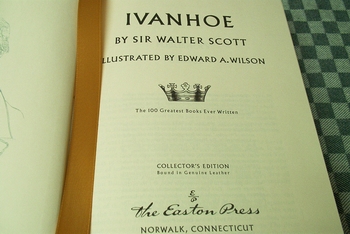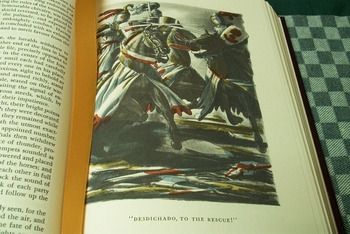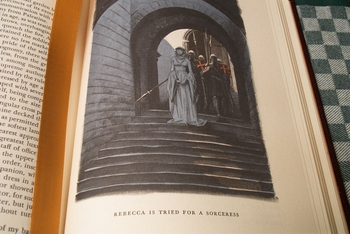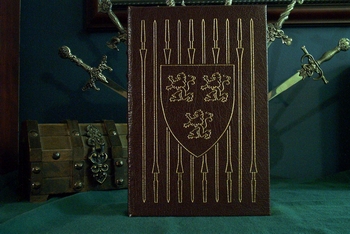Easton Press Walter Scott books
Kenilworth - The Collector's Library of Famous Editions - 1966
The Talisman - 100 Greatest Books Ever Written - 1976
Ivanhoe - 100 Greatest Books Ever Written - 1977
Rob Roy
Franklin Library Walter Scott books
Ivanhoe - World's Best Loved Books - 1978
Franklin Library Walter Scott books
Ivanhoe - World's Best Loved Books - 1978Ivanhoe - Greatest Books of the World's Greatest Writers (imitation leather) - 1978
Waverly - Heirloom Library of the World's Greatest Books - 1981
Waverly - Heirloom Library of the World's Greatest Books - 1981
Waverly - The Family Library of the World's Great Books - 1981
Sir Walter Scott biography
Sir Walter Scott, born on August 15, 1771, in Edinburgh, Scotland, was a prolific Scottish novelist, poet, playwright, and historian. He is often regarded as one of the most influential literary figures of the 19th century and is considered to be the founder of the historical novel genre. Scott was born into a family of Scottish nobility, with a lineage steeped in tradition and history. Despite being struck with polio at the age of two, which left him permanently lame in his right leg, Scott grew up with a keen interest in literature, history, and Scottish culture. He was educated at the Royal High School of Edinburgh and later studied law at the University of Edinburgh, eventually becoming a lawyer by profession.In addition to his legal career, Scott pursued his passion for literature, publishing his first major work, a translation of German romantic ballads, in 1796. However, it was his series of narrative poems, including The Lay of the Last Minstrel (1805), Marmion (1808), and The Lady of the Lake (1810), that brought him widespread acclaim and established his reputation as a leading poet of his time. Scott's greatest literary achievements, however, came with his novels. In 1814, he published Waverley, anonymously, which marked the beginning of his highly successful series of historical novels set in Scotland. This novel was followed by a string of successes, including Rob Roy (1817), Ivanhoe (1820), The Heart of Midlothian (1818), and Kenilworth (1821), among others. His novels were characterized by their vivid portrayal of historical events, colorful characters, and romanticized depiction of Scottish culture and landscapes.
Scott's literary prowess extended beyond his novels and poetry; he was also a skilled playwright and historian. His Tales of My Landlord series, published under the pseudonym Jedediah Cleishbotham, further solidified his status as a master storyteller.
Despite his literary success, Scott faced financial difficulties later in life due to investments in a publishing company that went bankrupt. In an effort to pay off his debts, he embarked on a grueling writing schedule, producing a remarkable amount of work in a short period. However, his health began to decline, and he passed away on September 21, 1832, in Abbotsford, Scotland, leaving behind a rich literary legacy that continues to inspire readers and writers to this day. Sir Walter Scott's contributions to literature and his portrayal of Scottish culture have earned him a lasting place in literary history.





Comments
Post a Comment
Share your best book review and recommendation